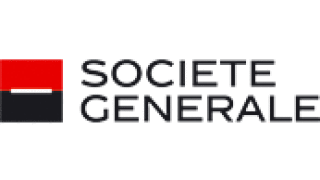Derivs - Regulation
-
Banks operating with large swaps trading operations will no longer be required to relocate their trading to a separate legal entity that is not federally insured following the rollback of Section 716 of the Dodd-Frank Act. As a result, banks will avoid incurring significant expenses, while saving time and personnel, according to lawyers.
-
The implementation of a stay on the contract termination rights of derivative counterparties by global regulators could change the face of derivatives trading, forcing counterparties to look at amending their agreements away from the prevalent two-way payment system, according to lawyers.
-
Société Générale’s Newedge prime services business has added LCH.Clearnet’s ForexClear as a new central counterparty clearing houses to its client over-the-counter clearing offering, allowing it clients to clear non-deliverable forwards.
-
The Commodity Futures Trading Commission has permanently approved LCH.Clearnet as a derivatives clearing organisation under the Commodities Exchange Act, after reviewing and amending the clearing houses’s original authorisation.
-
The European Commission has extended the mandatory capital standards for exposures to central counterparties under the Capital Requirements Regulations. Recognising that CCP authorisation and compliance requires more time to complete, regulators have extended the deadline by six months.
-
The US Congress is scheduled to consider a proposal included in the government funding bill which would allow banks to keep swaps trading units, rescinding a provision in Dodd-Frank that forces banks to spin off certain derivatives trading activities into another legal entity.
-
Kay Swinburne, Conservative co-ordinator for economic and monetary affairs, has hit back at the idea that the more controversial aspects of the Markets in Financial Instruments Directive can be fixed when the European Securities and Markets Authority writes its technical standards.
-
Commodity Futures Trading Commission commissioner Mark Wetjen claimed that central counterparty risk mitigation and management strategies need more coordination and harmonisation. But legislative bodies should take note of the potential negatives associated with harmonisation and the centralisation of counterparty risk before pursuing new rules, said lawyers.
-
Javelin, a swaps execution facility, has asked the Commodity Futures Trading Commission for a reduction of the liquidation time required for market agreed coupon swaps and international money market swaps that are cleared on SEFs in an effort to promote better liquidity and higher competitive trading volumes.
-
A lack of clarity over Canadian rules and regulatory oversight between provincial regulators has posed some challenges for derivative market participants. As Canada looks to fulfil components of the G20 reform mandate for OTC derivatives trading — including trade reporting, clearing and margin requirements — a lack of uniform compliance among participants and rulemaking differences between regulators pose hurdles for the market.
-
The European Securities and Markets Authority (ESMA) signed a memorandum of understanding (MoU) with the Australian Securities and Investments Commission (ASIC), which grants Australian authorities access to derivative contracts data from EU trade repositories (TRs) outside of their jurisdiction.
-
The Depository Trust and Clearing Corporation has partnered with TriOptima, enabling daily reconciliation of over-the-counter derivatives trades that are reported to DTCC’s European trade repository via triResolve, as mandated by the European Market Infrastructure Regulation.







